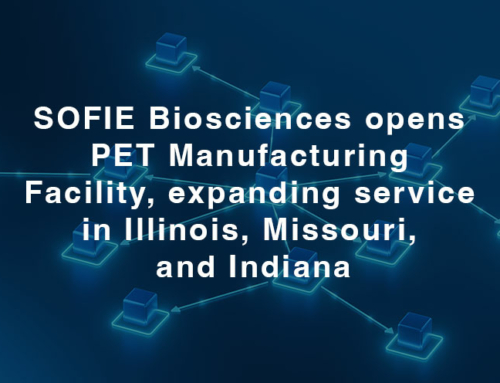CULVER CITY, CA., July 7th, 2011 – Sofie Biosciences, developer of molecular imaging systems and probes, has been awarded a 2011 Phase I Small Business Innovation Research grant from the Department of Energy. Of the 2,163 applications received in response to their funding notice, only 197 were selected to receive Phase I grants. Positron Emission Tomography (PET) is a molecular imaging modality that utilizes radiolabeled molecules (“probes”) to target and measure biological processes. Basic scientists can use the same probes to examine cells and mice as they do in patients to visualize and characterize the biology of disease, monitor its progression, and evaluate therapeutic efficacy. Over 1,600 PET probes have been developed to help answer a variety of biological questions, but only the glucose analog ([18F]FDG) is routinely used. This limitation exists because of the centralized radiopharmacy approach to PET probe production, with its complexity, high infrastructure cost, and necessity of specialized equipment and skilled personnel.
A decentralized approach to PET probe development is essential to give scientists and clinicians the freedom to determine what probes they want to use to solve the problems of their interest. This goal can be achieved by building a benchtop, PC-controlled, microscale chip-based commercial device for the on-demand production of PET probes, as is the focus of the grant.
“Winning this award enables our company to further accelerate the development of a truly disruptive technology that will allow researchers and physicians to make whatever PET probe they desire, onsite, and in a cost effective fashion,” said Patrick Phelps, Sofie’s President and CEO.
Creating a point-of-research/point-of-care distribution model is a transformational solution that empowers scientists and clinicians to control the development and use of PET probes as an alternative to the well-established centralized model. Sofie’s line of molecular imaging systems, radiochemistry modules, and probes enable PET to be more widely accessible, cost-effective, and convenient for integration into a variety of labs.






